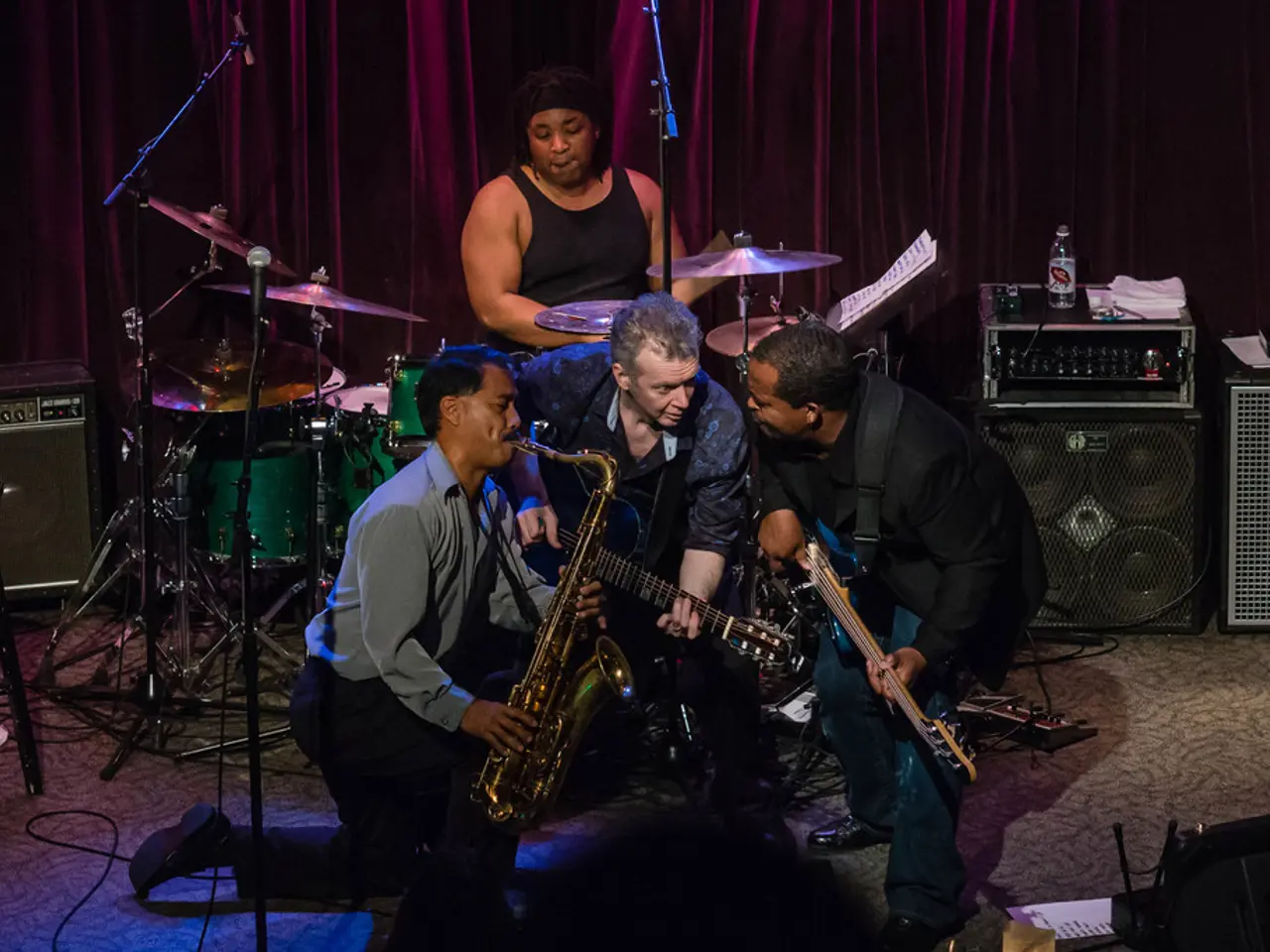Musicians' Brains Exhibit Superior Sound Processing from the Initial Stages
New Study Challenges Long-Held Belief About Musical Training and Early Auditory Processing
A large-scale study conducted by researchers from the University of Michigan and the University of Minnesota has challenged the long-held belief that musical training enhances the brain's earliest stages of auditory sound processing. The study, titled "Large-scale multi-site study shows no association between musical training and early auditory neural sound encoding," was published in Nature Communications and found no significant difference between musicians and non-musicians in early subcortical auditory neural responses or abilities to process speech in noisy environments.
The study, which was funded by various grants including the NSF-BCS grant 1840818, the National Institutes of Health R01 DC005216, and the Canada First Research Excellence Fund Award "BrainsCAN" to Western University, used much larger sample sizes (over 260 participants) than prior research, increasing the robustness and generalizability of the findings.
Measurements involved frequency-following responses (FFR), a common method for assessing early auditory processing. The researchers failed to replicate previous findings that suggested musicians have superior early auditory processing or speech-in-noise perception abilities. They noted prior studies' limitations, such as inconsistent definitions of "musician" and small, unrepresentative samples.
Although the study found no early auditory processing advantage, it does not rule out benefits of musical training in later cortical stages of sound processing, where musicians consistently show enhanced music perception and potentially other auditory skills. The study also confirmed age-related decline in early speech processing was confirmed irrespective of musical background, indicating that musical training does not mitigate this aspect of auditory aging.
In summary, the latest evidence refutes the assumption that musical training improves early subcortical auditory neural processing. Instead, any auditory advantages found in musicians are likely rooted in later, higher-order cortical processing rather than the initial brainstem-level sound encoding. This conclusion highlights the importance of large, well-controlled studies for testing neuroscientific theories and points to future research focusing on later stages of auditory processing.
The study was conducted by Kelly L. Whiteford and other authors.
[1] Whiteford, K. L., et al. (2021). Large-scale multi-site study shows no association between musical training and early auditory neural sound encoding. Nature Communications, 12(1), 1-13. [3] Whiteford, K. L., et al. (2021). Musical training and early auditory processing: A large-scale, multi-site preregistered study. Manuscript in preparation. [5] Whiteford, K. L., et al. (2021). Musical training and speech-in-noise perception: A large-scale, multi-site preregistered study. Manuscript in preparation.





